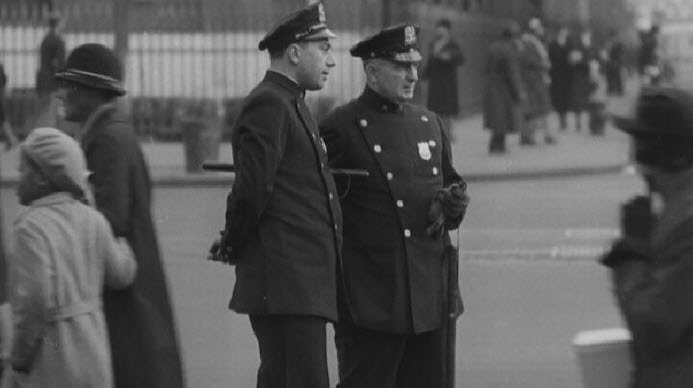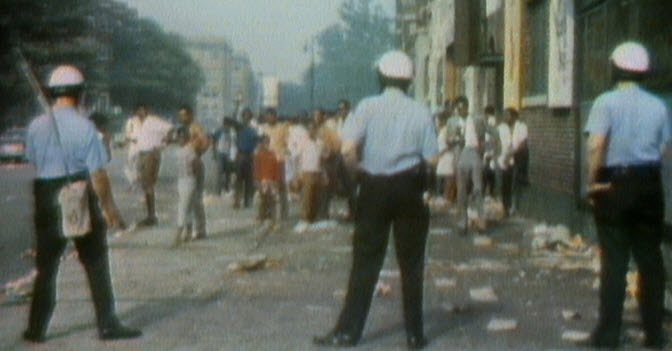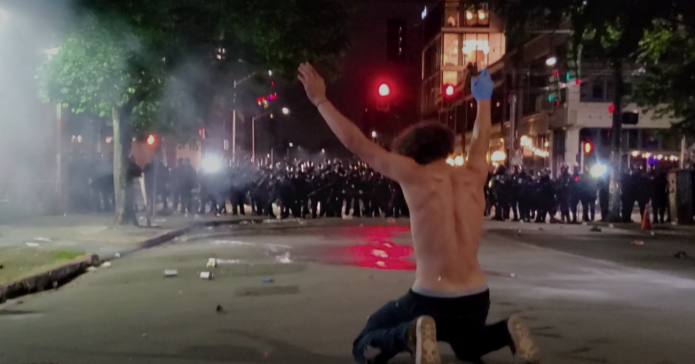Netflix documentary film “Power”, which was released on last Friday, examines the American history of police brutality and oppression during last several decades. If you are familiar with its main subject like me, you may not be that surprised by what it pointedly presents, but the documentary is still worthwhile to watch for its calm but sobering argument for the necessary social reforms for the American society, and you will probably come to reflect more on its main subject after it is over.
Mainly driven by the words from a bunch of various interviewees, the documentary initially focuses on the dark origin of the American Police. As some of you know, the American Police actually functioned as the patrol for monitoring or punishing African slaves during the 17~19th century, and this is the one of the main reasons for the long and deep mistrust against the police in many of African Americans communities. In addition, the American Police was also a major force behind the oppression on Indigenous people during that period, and that was certainly another shameful history of the American Police.
And this racist aspect of the American Police was naturally extended to some other ethnic groups during the 19th century. When many different European people emigrated into US, most of them were instantly labeled as non-whites just like African Americans. Although their social status was a bit better than that of African Americans, these low-class European people including Irish and Italian immigrants were often oppressed by the police in one way or another, and we see a series of archival records showing the blatant racism against them during that period.
Not so surprisingly, the main purpose of all these acts of oppression and brutality by the American Police was maintaining the status quo for the White Powers That Be, who did not hesitate to use that familiar strategy of “divide and conquer” from the very beginning. Just like they deliberately separated white servants and black slaves during the period of slavery, they intentionally drew the line between the African Americans and the European immigrants, and many of those poor European immigrants did not hesitate to become the parts of the oppressive police system mainly because they got some social reward for that (Have you ever wondered why many of American policemen are of Italian or Irish heritage?).
This alarming tendency of the American Police was continued into the 20th century, while only getting more and more increased along the passage of time. Often showing more of their racist aspects, the American police also oppressed many of labor strikes in the name of the law and order, and the American government and its numerous capitalist backers had no problem with that at all. As a matter of fact, they became all the more supportive when Russia quickly rose with its communist ideology during the late 1950s, and those powerful white guys including J. Edgar Hoover regarded many of those civil rights activists as communist subversives to be eliminated by any means necessary.
As more oppressed than before during that time, the oppressed often became quite radicalized as shown from the rise of those hardcore radical figures such as Huey P. Newton, and there were also more race riots and demonstrations around the country. In the end, the US government tried to analyze the roots of these social problems in the late 1960s, and that led to an influential government report which drew lots of public attention at that time, but. alas, the US government only came to focus more on giving more power and support to the police while not recognizing the real problems at all.
As shown from one montage scene in the documentary, this alarming trend has been maintained for next several decades by both of the two major political parties in the American society, and the consequences have been severe to say the least. The discrimination and oppression against the colored people in US by the American Police keep getting intensified, and there have been many unfortunate victims including George Floyd during last several years, but things still do not change much despite lots of public demand for more social reform.
On the opposite of many different scholars and experts, the documentary puts an active black police officer working in Minneapolis, Minnesota. He is evidently a good cop who really wants to protect and serve citizens, and he sincerely tries to make some change via his diligent work, but he also comes to show some skepticism and frustration. While determined to work as long as possible, he phlegmatically recognizes the toil from trying to do the right things, and that surely tells us a lot about how the system has been deeply flawed from the bottom.
In conclusion, “Power” makes a fairly solid presentation on the very troubling aspects of the American Police even though it occasionally feels uneven and scattershot as trying to show and tell too many things within its rather short running time (89 minutes). Compared to director/co-producer/co-writer Yance Ford’s previous Netflix documentary “Strong Island” (2017), this is relatively less satisfying in comparison, but it did its job mostly well in my humble opinion, and I think you should give check it out if you want to know a bit more about its main subject.










